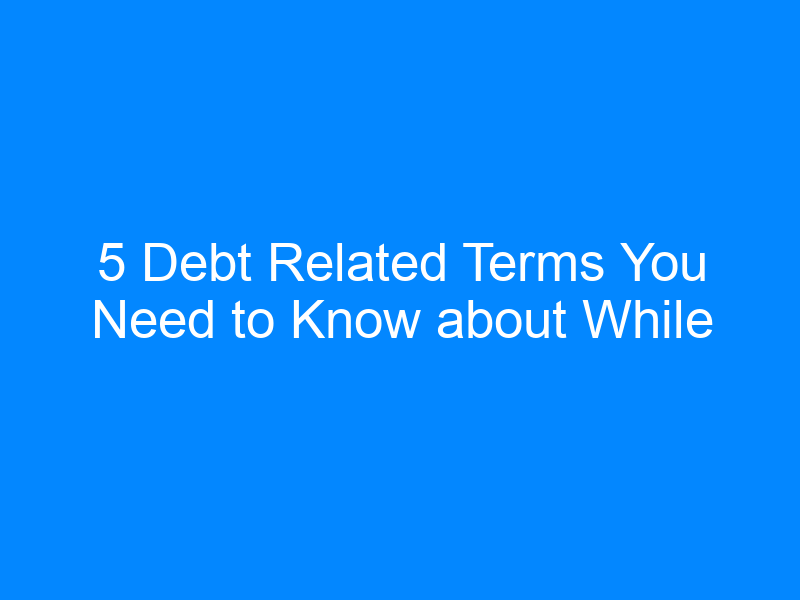Currently, the world is facing an unprecedented problem. COVID 19 has wreaked havoc all over the world. As a result, we are also going through a massive global economic crisis too. So, right now, when you are trying to remain afloat with your business, paying the credits and the invoices can feel like a burden to you.
When you are unable to pay your debts, it is necessary that you think of different options too that can help you understand your rights. Here, in the following points, I am going to tell you about few debt-related terms and their significance that we at Nelson Copper and Ortiz LLC often tell our clients about help them get educated about their rights. Take a look at the following terms to know more.
FDCPA
FDCPA or Fair Debt Collection Practice Act can help you a lot when you are hounded by debt collectors. This federal law is known for restricting the behavior of the commercial collection agency when they are attempting to get the money back from you. However, this law doesn’t apply if the debtor is a business or a company and that has failed to give the dues by the agreed date of payment as per contract or invoice.
Default Provision
While signing a contract for the business, it is necessary that you clearly state the default provision in it. By doing so, you and the other party involved in the contract will be agreeing on something that will be done when/if one of the parties fails to hold up their end of the contract. If your contract has such clauses that give you relaxation even if you failed to pay the money, you need to show it to the agency of debt collection service that has come knocking at your door.
Acceleration Clause
This clause is specified for a creditor to remain in an advantageous position. This clause generally comes in the contract that involves monthly or quarterly billing. If the debtor fails to pay the debt on time, then the creditor can take advantage of the acceleration clause, and with this ask for the whole term of the contract, not just one delinquent.
Debt Collector
A debt collector is a third-party entity, generally a representative from a third-party agency who takes care of the collection process. They initiate the payment process by identifying themselves and stating which business they are representing. They will also keep notifying you about the payment of a debt. If you are genuinely having trouble paying the debt, they can even come up with the settlement terms for you too so that you can pay the amount in installments. Generally, the creditor tries to get in touch with the best collection agency and the debt collector takes up the case and contacts you about debt recovery.
Garnishment
Garnishment happens when the creditor takes a part of your paycheck money from your bank account. This step will need a court order that will state that the creditor has the power of doing so for the recovery of the debt that you owe to them. However, there are certain types of debts that you owe to the government which can be recovered this way. In such cases, the government will not need a court order.
Being in debt is nothing to be ashamed of especially in a situation like this. But when you are being hounded by collectors, you need to be aware of your rights.




